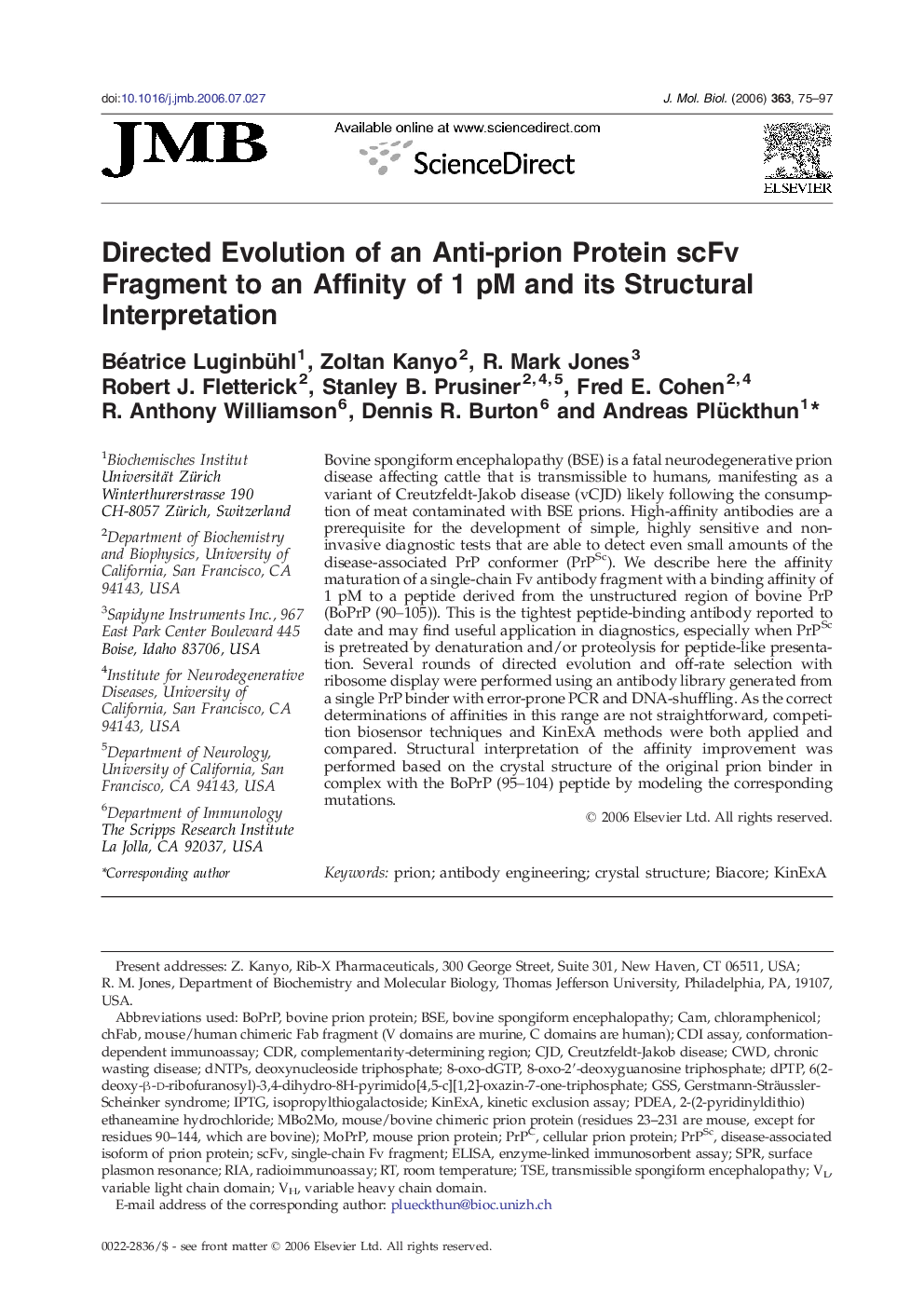| Article ID | Journal | Published Year | Pages | File Type |
|---|---|---|---|---|
| 2189016 | Journal of Molecular Biology | 2006 | 23 Pages |
Bovine spongiform encephalopathy (BSE) is a fatal neurodegenerative prion disease affecting cattle that is transmissible to humans, manifesting as a variant of Creutzfeldt-Jakob disease (vCJD) likely following the consumption of meat contaminated with BSE prions. High-affinity antibodies are a prerequisite for the development of simple, highly sensitive and non-invasive diagnostic tests that are able to detect even small amounts of the disease-associated PrP conformer (PrPSc). We describe here the affinity maturation of a single-chain Fv antibody fragment with a binding affinity of 1 pM to a peptide derived from the unstructured region of bovine PrP (BoPrP (90–105)). This is the tightest peptide-binding antibody reported to date and may find useful application in diagnostics, especially when PrPSc is pretreated by denaturation and/or proteolysis for peptide-like presentation. Several rounds of directed evolution and off-rate selection with ribosome display were performed using an antibody library generated from a single PrP binder with error-prone PCR and DNA-shuffling. As the correct determinations of affinities in this range are not straightforward, competition biosensor techniques and KinExA methods were both applied and compared. Structural interpretation of the affinity improvement was performed based on the crystal structure of the original prion binder in complex with the BoPrP (95–104) peptide by modeling the corresponding mutations.
